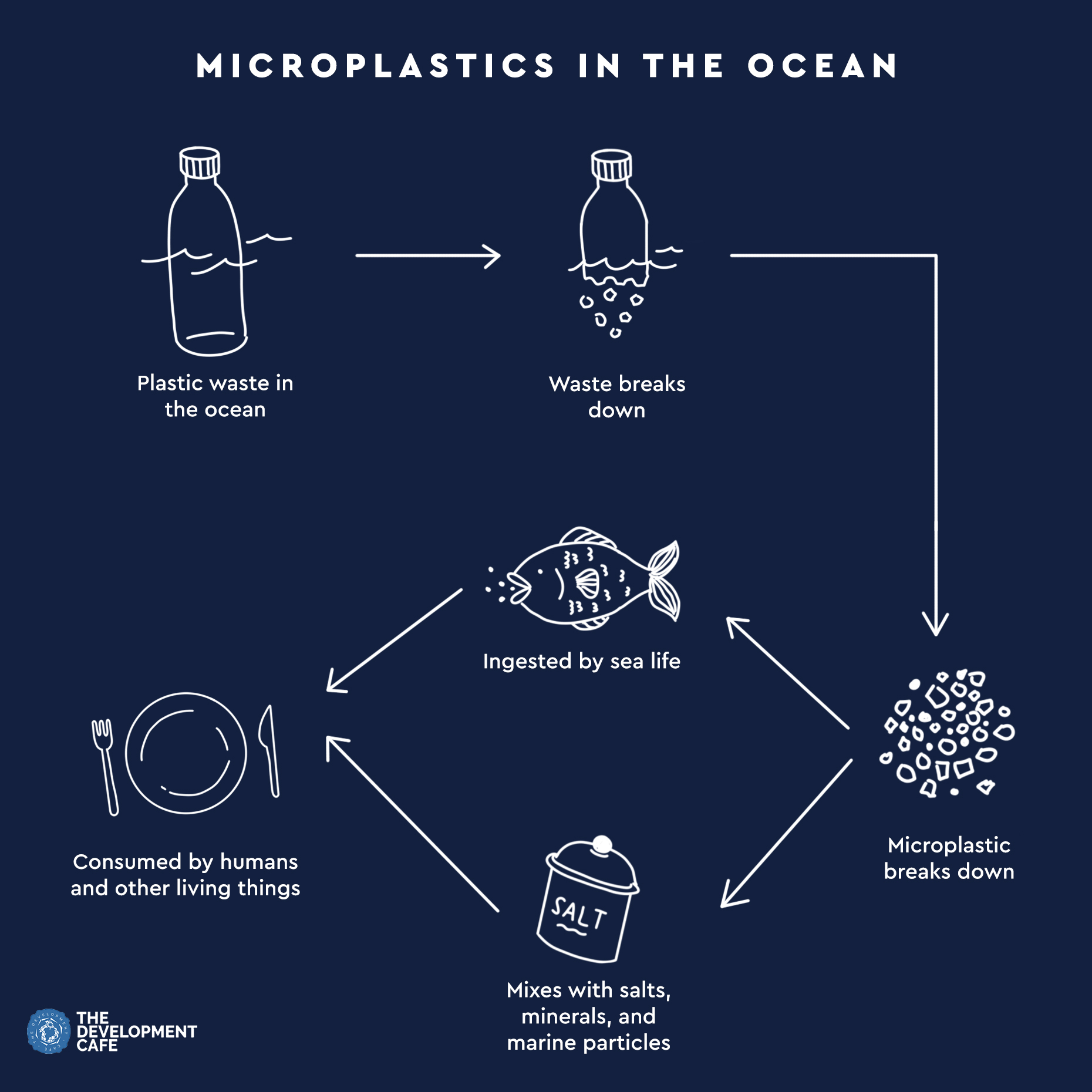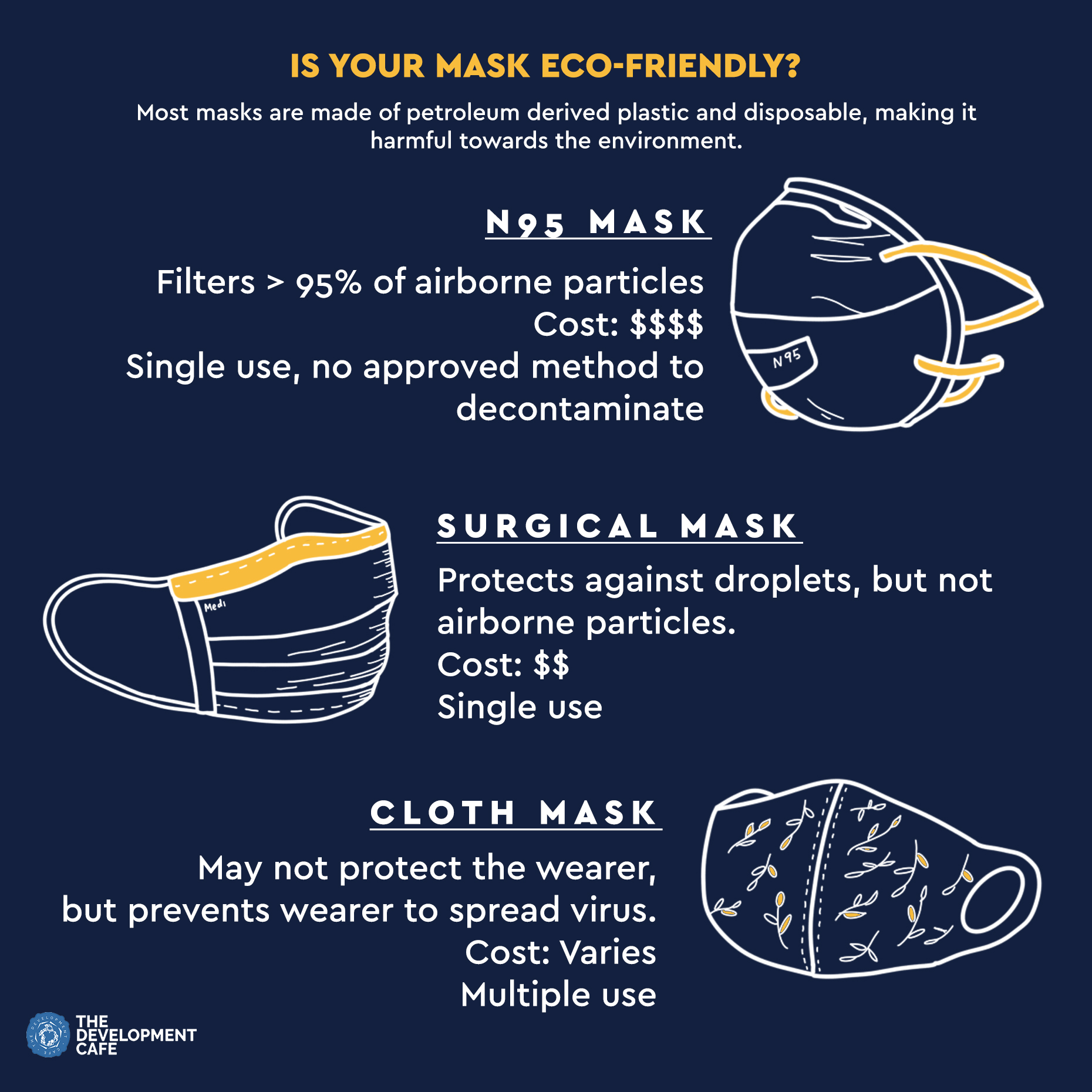First drafted in late 2018, the Jakarta provincial government has officially banned single-use plastic bags at supermarkets, malls, and traditional markets starting this July. The governor held off from signing it until environmentally friendly alternatives to single-use bags are easily accessible. Driven by the almost-full capacity of landfills, they place great hope to reduce the amount of plastic waste with this new rule. With the new rule in hand, Jakartans are swapping single-use plastic bags with reusable shoppers. One aspect of the plastic waste problem is being tackled, however, the pandemic sparks a surge in the excessive use of disposable plastic waste.
Wearing a face mask has become a part of the world’s new normal as a result of the pandemic. Marine conservation organisation OceansAsia reported an increased number of masks and gloves littering the seabed of Hong Kong. French divers have found a multitude of gloves, masks, and bottles of hand sanitiser, mimicking jellyfish swimming along the waves of the mediterranean.Â
The pandemic could threaten marine ecosystems
The World Health Organisation reports that in a month, the world needs 89 million medical masks, 76 million gloves, and 1.6 million protective gloves in the battle against COVID-19. These masks are mostly single-use, usually made of polypropylene which is a fossil-fuel derived plastic, requiring centuries to decompose. On the other hand, latex gloves are biodegradable, however, vinyl-based gloves take a while to break down.
Plastic waste usually ends up in the ocean, releasing tiny particles called microplastics. Unseen to the naked eye, they are consumed by fish, and then by those who consume seafood. These particles are also often found in table salt. Microplastics block digestive tracts, altering feeding behaviours which eventually lead to a reduced growth and reproduction output. They also act as vectors to toxic substances and pollutants, harming the aquatic ecosystem. When consumed by humans, multiple researches have shown that microplastics are one of the factors to health problems such as reproductive disorders, organ problems, and development delay in children. These direct health hazards are only the tip of the iceberg of disturbances caused by microplastics.

Recycling can be one of the solutions to help solve this issue, but it is a challenge as virgin plastics are cheap and easily accessible. Personal protective equipment (PPE) are composed of different materials, which require unique methods and tools to recycle. According to TerraCycle Europe’s head of communication, Stephen Clarke, it would cost more to collect and recycle PPE than the value of the recycled product. Authorities tend to avoid recycling if it doesn’t produce a desired capital.Â
Switch to reusable options

The pandemic may become a catalyst that speeds up our search for greener alternatives to single use plastics. Driven by mask shortage and the increasing plastic pollution in Canada, scientists at the University of British Columbia are currently developing a wood-fibre based mask that is biodegradable. A significant number of bioplastic research has also been going on even before the pandemic.
While the world works hand in hand to find eco-friendly alternatives to single use plastic, we can do our part by using reusable cloth masks as our daily protective gear. According to experts, reusable cloth masks should be washed at 60ËšC to kill any virus, making it an effective way to prevent the spread of COVID-19. In addition to that, avoid using gloves in non-medical settings. Dr Jane Greatorex, University of Cambridge’s virologist believes that wearing gloves isn’t necessary when doing day-to-day activities. She believes that it gives a false sense of protection and simply washing hands regularly is a highly effective method to protect everyone from the virus. Thus, it’s best that we avoid using disposable plastic and opt for reusable cloth masks instead. To make your own cloth mask, check out this article.
Disclaimer: the views expressed by the author do not necessarily represent the views of The Development Cafe.
References:
http://oceansasia.org/beach-mask-coronavirus/
https://warwick.ac.uk/fac/sci/wmg/people/wmginsight/is-the-future-more-plastic/
https://www.vogue.in/culture-and-living/content/disposable-face-masks-gloves-plastic-ocean-waste-environment

